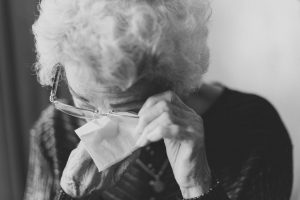 As the new coronavirus sweeps the globe, residents in nursing homes have been some of the hardest hit populations. An outbreak, which can be declared after just one of two residents test positive for the virus, can be deadly for anyone in the nursing home. Since the virus first emerged, it has been said that the people most vulnerable to the sickness are the elderly.
As the new coronavirus sweeps the globe, residents in nursing homes have been some of the hardest hit populations. An outbreak, which can be declared after just one of two residents test positive for the virus, can be deadly for anyone in the nursing home. Since the virus first emerged, it has been said that the people most vulnerable to the sickness are the elderly.
Although there is seemingly little that can be done about it, the staff and owners of these nursing homes have more responsibility on their shoulders than ever. When they fail to meet that responsibility and are negligent in their duties, nursing home residents and their families can hold those staff members and nursing home owners liable for any damages. A California nursing home abuse lawyer can help families with their case.
Nursing Home Guidelines During COVID-19 Set By CMS
 San Francisco Injury Lawyer Blog
San Francisco Injury Lawyer Blog



